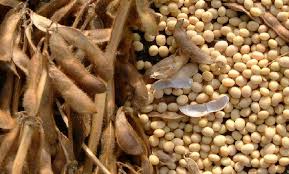Staff Reporter
Farmers in Shurugwi are rallying behind the government’s Traditional Grains Programme, marking a significant step towards bolstering Zimbabwe’s food security and promoting self-sufficiency. This initiative is part of a broader push to encourage the cultivation of climate-resilient crops, which are gaining popularity for their nutritional benefits and adaptability to changing weather patterns.
With the new farming season on the horizon, Government has already started distributing inputs to support farmers in planting traditional grains. This proactive approach aims to ensure that farmers are prepared well ahead of the rains. For many in Shurugwi, this is a welcome move as they look to expand their agricultural output.
Speaking at the event yesterday, Midlands Minister of State for Provincial Affairs and Devolution, Owen Ncube, reassured farmers that the government is fully committed to supporting the Pfumvudza program.
“All farmers who have prepared their plots will receive the necessary inputs before the rainy season begins, and the government's focus is on achieving food security. Let me also take this opportunity to address any potential misuse of the inputs, warning against illegal sales. The inputs are for every farmer who has done the Pfumvudza plots. No one will be left behind, and I must emphasize that these inputs are not for sale. Anyone found selling them will face the full force of the law,” he said.
Shurugwi North, member of parliament Joseph Mupasi strongly advocates for traditional grain cultivation as a means to combat hunger and secure the nation’s long-term food security. Highlighting the economic potential of traditional grains, emphasizing that, globally, value-added agriculture generates significant revenue.
“It is not a secret that all over the world, value-added agriculture generates several billions of dollars for some of the globe’s huge economies, which now invest money in value process chains of a product, right up to the shelf. Traditional grains can do the same for Zimbabwe, providing economic benefits while ensuring food security,” said Mupasi.
A local farmer expressed optimism about the programme, saying, “Our communities are growing, and that means we must be prepared to produce more food for the people, despite the changing climatic conditions. Traditional grains offer us that opportunity because they are more resilient.”
Another local farmer highlighted how the focus on traditional grains aligns with Zimbabwe’s broader agricultural strategy, which emphasizes agro-ecological matching and building resilience in the face of climate challenges. The farmer noted that this approach is essential for ensuring sustainable farming practices.
"This season, the distribution of agricultural inputs to beneficiaries has commenced early, marking a significant shift towards a strategy that prioritizes agro-ecological matching and resilience-building," he said.
The focus on traditional grains, such as sorghum, millet, and other indigenous crops, comes at a time when the Pfumvudza/Intwasa model has proven to be an effective strategy for promoting food security across Zimbabwe.




